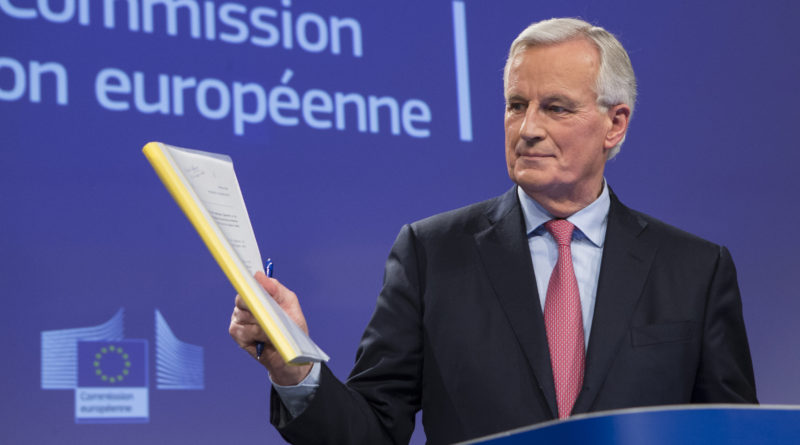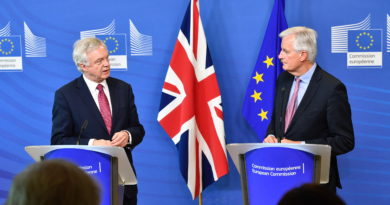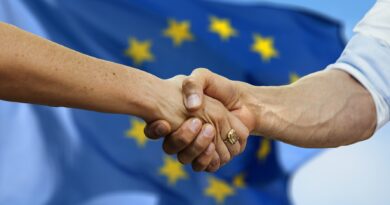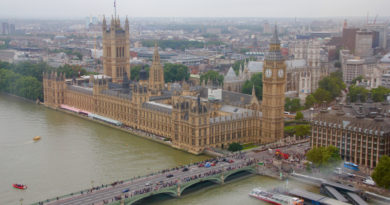Draft withdrawal treaty, transition, May speech: how the UK is conceding on citizens’ rights
The draft withdrawal agreement, new guidelines from the UK Home Office and Theresa May speech this week signalled new openings on the Brexit rights of EU nationals in the UK.
In December, the UK and the EU reached a partial agreement on the rights of EU citizens based in Britain and British residents in the rest of the EU. Their current status is protected under EU free movement rules, which will fade after the UK leaves the European Union. Negotiations continue, however, and this week saw new developments.
Withdrawal agreement, new EU push
On Wednesday, the European Commission presented the draft withdrawal agreement. This document translates in legal language the political deal reached in December (a summary is available here) and is still subject to negotiation. The draft further elaborates in certain areas, for example clarifying what happens when national authorities are not able to accept a residence application due to technical problems. This would allow EU nationals to get more time to apply for “settled status”, the new legal framework ensuring their rights after Brexit, if something goes wrong with the registration system the UK government is preparing.
The draft also covers non-EU family members of EU nationals living in the UK. This refects the EU position, which is still opposed by the British government.
“The section on citizens’ rights is extremely precise so that it can be relied upon directly by EU citizens in British courts,” says the European Commission.
The text also specifies the role of the future independent authority which will monitor the citizens’ rights part of the deal. This should have the power to receive and investigate complaints, conduct inquiries on its own initiative and inform the European Commission of any such legal actions.
No changes from December, instead, for British residents in the rest of the EU. They will maintain most of their current rights in the country of residence but will lose the freedom of movement across the EU27. “Today’s text is just further proof of unfinished business for the people directly affected by Brexit, but in written form,” commented Jane Golding of advocacy group British in Europe.
Transition period, UK concessions
The draft withdrawal treaty confirms that free movement of people between the UK and the EU – like any other EU rule – should continue during the transition period following Brexit. This means that the rights of people moving to and from the UK before the end of 2020 will be protected by the withdrawal agreement.
The British government wanted a different status for people arriving after the official Brexit date, March 29, 2019. But a new document by the Home Office has softened the tone.
It says that “there will be no new constraints on working or studying in the UK in the implementation period”, and that new arrivals will be eligible to stay “after the accumulation of five years’ continuous and lawful residence.” But this would be under the more restrictive UK immigration rules, meaning constraints on family reunions and no oversight by the EU Court of Justice.
The Brexit Steering Group at the European parliament criticized the document. “We cannot accept any form of discrimination between EU citizens who arrive before or after the start of any transition,” said Guy Verhofstadt, the European parliament Brexit coordinator.
There are also doubts about the ability of the British government to put in place in a short time two different registration systems, and possibly a third one for the future immigration regime. But the Home Office document leaves room for negotiations:
Were there to be a difference between the rights set out above, and those afforded to EU citizens who arrive after the implementation period under the future immigration framework, the more generous provisions will apply to this cohort.
Theresa May speech and the European Court of Justice
In a speech setting out the UK vision for the future trade relation with the EU, Prime Minister Theresa May broke one of her red lines, in relation to the future role of European Court of Justice. So far, the British government has maintained that the EU Court should no longer have jurisdiction on British territory. This is why, when it comes to citizens’ rights, UK courts will have “due regard” to relevant decisions of the Luxembourg Court for only 8 years and a special arbitration system with an independent authority has been devised.
But Theresa May said that the UK is prepared to accept EU Court rulings in specific areas, e.g. if the UK continues to participate in EU agencies (the European Medicines Agency, the European Chemicals Agency, and the European Aviation Safety Agency). This prompted advocacy group the3million to call for a review of the mechanism to settle disputes on people’s rights too.
“The 8 years sunset clause must go,” said the3million on Twitter. “Why will #citizensrights of 3.6m people have less protection than an airline, medical company or energy provider?”
Here is the exact passage of Theresa May’s speech referring to future remit of ECJ should UK continue to participate in EU agencies. Why will #citizensrights of 3.6m people have less protection than an airline, medical company or energy provider?
The 8 year sunset clause must go pic.twitter.com/PqqGP6fDBj
— the3million (@The3Million) March 2, 2018
In her speech, Theresa May also called on the EU to “maintain the links between our people”. But she immediately added that the UK will “control the number of people who come to live in our country” and that, in essence, migration should be dependent on economic goals.
But UK citizens will still want to work and study in EU countries – just as EU citizens will want to do the same here, helping to shape and drive growth, innovation and enterprise. Indeed, businesses across the EU and the UK must be able to attract and employ the people they need. And we are open to discussing how to facilitate these valuable links.
So we want to limit the number of barriers that could prevent UK firms from setting up in the EU and vice versa, and agree an appropriate labour mobility framework that enables UK businesses and self-employed professionals to travel to the EU to provide services to clients in person and that allows UK businesses to provide services to the EU over the phone or the internet. And we want to do the same for EU firms providing services to the UK.
On BBC on Sunday she confirmed that the new migration policy will be part of the negotiations with the EU.
V interesting that PM repeats that migration policy will be part of negotiation….#marrshow
— Jill Rutter (@jillongovt) March 4, 2018
Claudia Delpero © all rights reserved.
Photo: EU Brexit negotiator Michel Barnier presenting the draft withdrawal agreement. © European Union , 2018, EC Audiovisual Service, by Lukasz Kobus.




